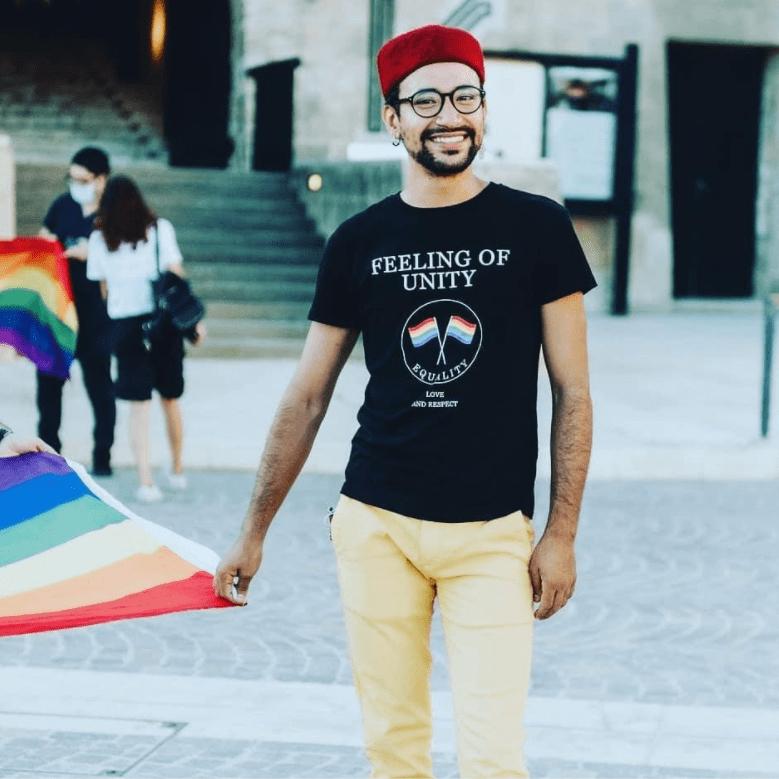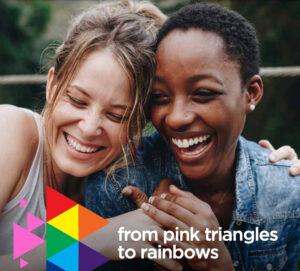Documentary video maker works to protect LGBTI migrants
Colin Stewart is a 45-year journalism veteran living in Southern…
African LGBTI refugees flee to Europe for safety and acceptance, but even if they survive the northward voyage, they often end up in squalid detention centers. Malta resident Mohamed Ali (Dali) Aguerbin, a documentary film maker originally from Tunisia, wants to put a stop to that.

The LGBTQ rights advocacy site Alturi published the following profile of him:
Mohamed Ali (Dali) Aguerbi — documentarian, Malta
Dali came to Malta by accident. He is originally from Tunisia where homosexuality is criminalized by three years of imprisonment since French colonialism in 1913. He came for a performance and ended up moving to the country. “I’m an activist by nature,” he says. So, once he decided to stay in Malta, he started looking for LGBTI organizations and found the activists there to be very supportive.
However, he discovered that a lot of people flee their hometown due to homophobia and then arrive in Malta only to be treated poorly for being migrants. This double discrimination leaves people feeling isolated.
These people are being put into detention centers in Malta. Human rights centers have been fighting them for about 10 years. Dali says the court of Malta declared the detention policy to be illegal, but the government is still proceeding with the policies. People are in cages without any discussion or services. There are even minors being detained.
The treatment within the spaces is even more hostile when they realize the person isn’t Maltese and worse if they have a different sexual expression. There are 40-50 people packed into the same space so there is no privacy or dignity. People have been raped and abused because of their race or because they are queer.

In addition to this, people in detention can be deported at any time, which leads to many cases of moral crimes. People can get in connection with families of LGBTI people and murder them or get them deported and they won’t be punished. This happens in other countries and there is concern that it will happen in Malta.
A lot of people don’t even know that Malta existed. A lot of migrants are trying to get to Italy and end up in Malta. “So, this perception that Malta is the destination and that just because we give them open centers that we are serving them the best treatment and that they have to praise and thank us for this generosity is not true. People are suffering in inhumane conditions in their home and then it continues here.”
Dali’s documentary, “Rainbow Bridge” , was created to bring people together without needing contact, due to Covid restrictions. Dali said he reached out to around 20 people and only three people agreed to be interviewed. The island is very small. There are only half a million people there so everyone sees each other a lot which makes it hard to speak out.
Women representation was very hard to obtain for the documentary and impossible in the end. Women are already mistreated in these areas. Therefore, if they are LGBTI, there is a greater concern for their well-being. The fear of people suspecting was too great for anyone to want to come forward.
“The generalization is the problem. People put everyone in one box.” Dali says that there is no humanization on the topic of migration. Society praises the pushback of migrants because they want to limit the numbers of migrants entering Malta “but they don’t know the stories of people and what they went through, their journey.”
Dali says that people have underwent rape, enslavement, disease and are traumatized to just sit and see the water, but society doesn’t see these things. They think that they have willingly put themselves at risk when they had no choice. It is perceived as being easy to come here and that migrants can pay easy money and smuggle people with little effort. But the reality is that they are risking their lives.
Dali explains that getting a visa is very complicated. There are several papers you need and even if you get them all, you must pay money for the visa. After paying, there is a possibility of not being refunded and getting rejected without any kind of reasoning. So, not everyone can get a visa. There are different realities and privileges. Their lives are at risk at home for being LGBTI along with other reasons and they are risking it again to leave.
The Malta government has made available a leaflet for the LGBTI migrant community. There are new policies within international protection agencies about how to deal with cases for LGBTI people. Dali says, “the asylum index was 33% and now it is 100%”. The people acknowledge their effort to do something for the community, yet there is still work to be done.
Dali joined MGRM, The Malta LGBTIQ Rights Movement (a non-profit advocating for Malta gay rights), in 2018 and has acted as a committee member for two years. There are three different memberships for MGRM, gold, bronze and silver with the bronze being a free membership. If you don’t wish to become a member, you can also donate to the organization.
MGRM works with:
- Rainbow support service – a group of social workers that provide social and psychological support for LGBTI people and their families.
- Rainbow family network – brings together LGBTI families in a secure environment to discuss, among others, their challenges and to receive professional advice
- HIV Malta – objectives are to de-stigmatize HIV, start a conversation on the subject by making information easily accessible, promote the importance of mental wellbeing, and ensure that there is an ongoing commitment to make newly developed HIV medication.
“This project is on a social level, but I want to take it to a policy,” Dali says. He hopes LGBTI migrants can clearly have safe spaces and better policies when it comes to detention.




